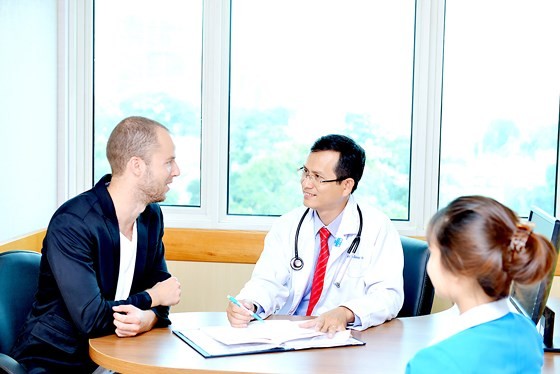
However, because many medical institutions are overloaded with patients hardly meeting facility demand; accordingly, it takes long time to earn from health tourism.
Vice director of the Tourism Department Nguyen Thi Anh Hoa said that around 80,000 health tourism visitors have arrived in HCMC earning revenue of $2 billion. Ho Chi Minh City alone has welcomed 30,000 – 40,000 wellness tourists mostly from Cambodia and Laos bringing the turnover of $1 billion.
Lately, many Vietnamese living in Australia, the US, Canada, and Japan returned the country for seeing their relatives and undergoing medical treatment. Despite improvements made to hospitals, Vietnam is not regarded as a prominent medical tourism destination when compared with Thailand, Singapore, Malaysia and India that clearly lead in this specialized travel sector.
Moreover, a large of quantity travelers unintentionally returned Vietnam for medical treatment because they have less information and very a few of health tours are introduced to them.
The medical sector is considered to have many advantages such as low charge, highly-skilled medical workers who can perform difficult medical techniques. Experts said the city health tourism can’t develop its potential because small-scale investment in medical services can’t create impression on tourists.
Furthermore, tourist agents in HCMC have neglected health tours because they fret that local medical services are not entirely satisfactory to customers.
An international tourist agent in HCMC said that medical facilities must have global certificate or certificate issued by the medical association of a certain country to have tourists’ trust. Additionally, medical institutions in Vietnam must sign contract with physicians in the world to provide post-operative care.
According to the U.S. Transparency Market Research, it is expected that health tourism market in the world will have revenue of $32.5 billion, tripling in 2015. The hike is because people in western countries will face difficulties to undergo medical treatment without insurance. Western insurance card holders even pay high fee for some medical services in comparison to in Asia.
Therefore, people in western countries without insurance opt to travel to an Asian country to undergo an expensive surgery.
Recently, the health sector and the tourist sector have released 10,000 Vietnamese - English bilingual Medical Tourism Guide which provides basic information of the medical tourism system of Ho Chi Minh City to local and international visitors.
The book includes information of treatment methods, working time, address and map of medical facilities, traditional medicine, dental services and treatment of heart diseases, cancer, and IVF.
Deputy Director of the Health Department Dr. Tang Chi Thuong said people in developed countries prefer to have health tours offering undeveloped countries to grow the health tourism. Hence, this time is most suitable for HCMC to find its way to attract more tourists for health tours.
“At present, facilities and medical treatment quality in infirmaries basically meet health tourists as the city has provided good dental services, cosmetic surgery, traditional medicine, general treatment and screening of many diseases. From now to 2020, the city health sector will build and develop medical centers providing specific difficult techniques to meet patients’ increased demand”, Dr. Thuong said.
However, to develop health tourism, quality of medical facilities taking part in the model must be certified. These facilities have to recruit a force of medical workers who can speak in English well.
























